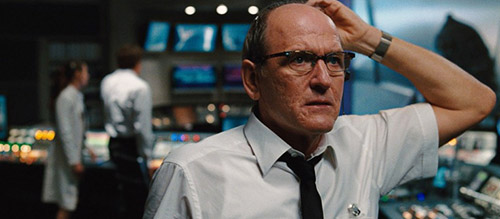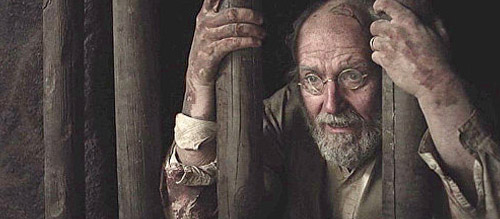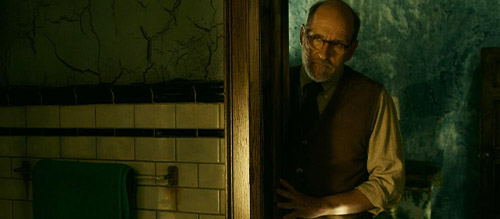Richard Jenkins: 3 Career-Defining Performances
This article was written exclusively for The Film Magazine by Scott Z. Walkinshaw.
Of all the character actors working today, perhaps no one else brings such low-key class to his films as Richard Jenkins. Rarely front and centre, Jenkins is an actor who can mostly be found mixed into ensemble casts – ensembles he always remains distinguishable in. From his work in acclaimed TV series such as ‘Six Feet Under’ and ‘Olive Kitteridge’, to his appearances in films like The Witches of Eastwick and Burn After Reading, Jenkins’ characters are often mild-mannered yet never boring – everyday people with beating hearts to be found underneath.
In this piece, we here at The Film Magazine are taking a look at Richard Jenkins’ stand-out roles, celebrating this character actor’s most memorable and impressive portrayals.
These are Richard Jenkins’ 3 career-defining performances.
Be sure to follow us on Twitter to keep up to date with more articles like this one.
1. The Cabin in the Woods (2012)
With so many strong supporting roles under his belt, as well as his Oscar-nominated leading performance in 2007’s The Visitor, The Cabin in the Woods may seem like an odd first stop when evaluating Jenkins’ filmography. His importance to this 2012 film, however, cannot be overstated. While the younger cast deal with the horror side of Drew Goddard’s sly pastiche, Jenkins and co-star Bradley Whitford keep the scales balanced with their ultra-mundane control room chemistry. In a short-sleeved white shirt, black tie and clip-on ID, Jenkins appears unassuming, The Cabin in the Woods using his real-life reputation to mask his character’s sinister intentions. The contrast of the white-collar technicians with a world of zombies, werewolves and mermen makes for most of the film’s comedy as the characters of Jenkins and Whitford routinely pull the strings that keep the student body count high. The film’s biggest laugh comes from watching Jenkins shout expletives at footage of adorable Japanese schoolgirls thwarting an evil demonic spirit.
2. Bone Tomahawk (2015)
Referred to repeatedly by Kurt Russell’s Sheriff Hunt as “old man”, Jenkins’ character in S. Craig Zahler’s grisly revenge-Western sees him playing more into his age than in any of his other performances. “Back-up” Deputy Chicory speaks with a hoarse, strained voice instead of Jenkins’ usually sharp crackle. Here Jenkins is a little more slow-witted than his usual persona – often a little hapless, but respectable nonetheless. In other hands, Chicory may have merely been another member of the Western genre’s doddery old-timer-club, but Jenkins retains a vital sense of dignity, and the character is all the better for it. We learn that Chicory is a widower and that since his wife’s death he spends most of his time at the Sheriff’s office making himself useful with more than his share of duties. In Sheriff Hunt, he finds not just work but good company, and the duo’s exchanges throughout their journey to rescue a couple of townspeople from a tribe of cannibals give the film some much needed heart and levity. In one particularly bleak-looking situation, he begins to recount a trip taken with his wife to a travelling flea-circus – at first it seems almost random, but these are the tangents, stories and questions of an elderly man who has spent his life with someone there to answer them. As Chicory, Jenkins finds good nature weathered by harsh experiences.
Other Recognisable Performances: Step Brothers (2008); Let Me In (2010); Kajillionaire (2020)
3. The Shape of Water (2017)
The Shape of Water Review
Guillermo del Toro’s films are about outsiders, the people who don’t fit into society’s norms and predefined plans. The Shape of Water features not just one, but an entire cast of them, each with their own unique societal statuses and consequential troubles. Here, it is in the company of each other that the world’s downtrodden can find acceptance, love and understanding.
In a film of amphibian men, Russian spies and steampunk laboratories, Richard Jenkins portrays perhaps the most down to Earth element as Giles, the neighbour and confidant to the mute Elisa (Sally Hawkins).
As a closeted homosexual in the early 60s, Giles has been living with his secret for years. His one attempt to reach out to a long-pined-for pie-shop owner ends in humiliation and threat, while a meeting with an advertising agency sees his hand-painted work shunned in favour of photographic “perfection”. Jenkins brings tired exasperation to the role, imbuing Giles with a history of wasted potential and regret, both sexually and professionally, but underneath is a warmth that radiates between himself and his co-star. Their couch-side tap-dance remains one of The Shape of Water’s sweetest moments.
Played with wit and vulnerability, Giles earned Jenkins multiple award nominations, something that seems astoundingly sparse when looking back on his career. No matter. To really appreciate someone’s work, a gold statue isn’t enough. Sometimes it means more to just pay attention, and as one of cinema’s unsung heroes, Jenkins surely deserves it.
Recommended for you: Guillermo Del Toro Movies Ranked
Written by Scott Z. Walkinshaw
You can support Scott Walkinshaw in the following places:
Twitter – @scottfuzz
Letterboxd – /scottfuzz




